TravelingForMiles.com may receive commission from card issuers. Some or all of the card offers that appear on TravelingForMiles.com are from advertisers and may impact how and where card products appear on the site. TravelingForMiles.com does not include all card companies or all available card offers.
Other links to products and travel providers on this website will earn Traveling For Miles a commission that helps contribute to the running of the site. Opinions, reviews, analyses & recommendations are the author’s alone and have not been reviewed, endorsed, or approved by any of these entities. Terms apply to all credit card welcome offers, earning rates and benefits and some credit card benefits will require enrollment. For more details please see the disclosures found at the bottom of every page.
Leaving aside, for a moment, the fact that British Airways decided to announce a complete overhaul of its frequent flyer program at a time when it it was clear that as few people as possible would immediately notice (30 December), and leaving aside the fact that it tried to gaslight its frequent flyers by claiming that all the changes being made (changes which are very negative for a large percentage of members) are being made in response to member demands, my biggest issue with what we’ve heard from BA so far is that I can’t work out what the airline is doing.
I’m very sure that somebody, somewhere in the bowels of Waterside, believes that the changes being made to the British Airways Executive Club are the beginning of an increased source of revenue for British Airways, and that the changes herald the dawn of a new era for the airline’s relationship with its customers, but I haven’t yet seen or read anything that explains to me how this is going to happen in practice.
A quick recap
The key changes
In case you missed it, here, very briefly, are the key changes that British Airways is making to its frequent flyer program (changes that kick in from 1 April 2025):
- The British Airways Executive Club (BAEC) will be renamed the British Airways Club (BAC).
- The new program will award status credits based on an equation centered around what a customer spends rather than on an equation centered around the distance the customer travels and the cabin they travel in when a fare is booked through BA, American Airlines, or Iberia.
- For bookings made with partner airlines other than AA and IB, Tier Points will be awarded based on a percentage of miles flown and British Airways has yet to confirm what these percentages will be (although we’re lead to believe that they’ll start from as low a 2% of distance flown).
- The new elite status thresholds will look like this:
- Bronze – 3,500 Tier Points
- Silver – 7,500 Tier Points
- Gold – 20,000 Tier Points
- Gold Guest List (to qualify) – 65,000 Tier Points of which at least 52,000 Tier Points must be earned through British Airways-marketed flights and/or British Airways Holidays.
- Gold Guest List (to retain) – 40,000 Tier Points of which at least 32,000 Tier Points must be earned through British Airways-marketed flights and/or British Airways Holidays.
- Going forward, 1 status credit (a Tier Point) will be awarded for:
- Every £1 of eligible spending on British Airways marketed flights (the fare less taxes and fees).
- Every £1 spent on purchasing Sustainable Aviation Fuel credits.
- Every £1 spent through British Airways Holidays (Tier Points will be split equally among every person named in the holiday booking).
- Holders of the British Airways Premium Plus American Express credit card (available to UK residents only) will be able to earn up to 2,500 Tier Points per year.
The net effect of all of this will be to make earning meaningful elite status with British Airways expensive – Silver status will now require in the region of £8,500 (~$10,500) of spending with British Airways while Gold status will now cost in the region of £24,000 (~$34,000).
As things stand now (and have stood for some time), those two status tiers can be locked in for less than half of what will be required going forward and, if you’re prepared to take circuitous routings and start your travel outside of the UK (i.e. take positioning flights), the cost to you will be even less.
The point of frequent flyer programs
The whole point of frequent flyer programs is to encourage travelers to choose to spend their money with an airline in return for a promise of benefits and, ultimately, to encourage travelers to make purchasing decisions based on more than just the cost of airfare.
A well-executed frequent flyer program is often able to persuade its members that it’s worth spending more with a particular airline in order that they (the members) may climb the program’s status ladder and, by doing so, access increasingly better benefits when they travel.
Put simply, these programs are designed to use elite status and the benefits that status offers to lock customers into an airline’s ecosystem and to persuade them not to look elsewhere even if elsewhere is where they’ll find cheaper fares and/or better routings.
There is, however, one very important thing that you need to keep in mind when considering what makes a good frequent flyer program.
If the elite status that an airline program offers doesn’t appear to be within reasonable reach (reaching it doesn’t have to be cheap, reaching it just has to appear achievable within reasonable parameters), the program doesn’t work very well.
If someone takes a look at a program’s parameters and can’t imagine themselves being able to access the better benefits being offered, that program is not going to be able to entice that person to spend any more money with the relevant airline than they would have spent anyway.
That’s not always a bad thing (there are certain customers that an airline doesn’t feel the need to incentivize – usually those with limited disposable incomes), but a good frequent flyer program will make sure that it doesn’t exclude, alienate, or put off customers who are in a position to add to its profits.
A frequent flyer program that doesn’t effectively target people who have the choice of where they spend their money and whose engagement with the program would add to the airline’s bottom line, is a poor frequent flyer program. And this is where I have a problem with the new British Airways Club.
My confusion
I don’t understand why British Airways thinks that the changes it’s making to its frequent flyer program will make it more money or save it money.
Who is BA targeting with its plan to make earning elite status considerably more expensive than it is right now?
There are two groups of people who are most obviously not negatively affected by these changes:
- People who spend their own money with British Airways and who usually spend over what will now be required to reach the more useful status tiers.
- People who travel for business, whose flights are paid for by the business they work for, and whose travel patterns usually see their employer spending more on their flights than will now be required to reach the more useful status tiers.
Are these the people BA is targeting?
I’m going to have to assume that it is because just about everybody who doesn’t fit into one of these two groups will be worse off under the terms of the new British Airways Club.
This leads me to wonder two things:
Firstly, how many people are there in the first group?
I freely admit that I don’t have access to BA’s customer database so I don’t know, but I’m prepared to speculate that out of the overall pool of active contributors to BA’s profits, people who can and are prepared to spend £8,500+ (~$10,500) for mid-tier status or £24,000 (~$30,000) for top-tier status (of sorts) aren’t going to form a significant percentage, so it would be strange if all these big changes are for the benefit of this (relatively) small group.
Besides, what do the changes to the program do to encourage more of these people to book with BA?
Secondly, given that a very large percentage of people who fall into the second group will be working for businesses that have a corporate contract with British Airways (i.e. these businesses effectively tell their employees that they have to book with BA because the business gets a hefty rebate from the airline at the end of every year), of what importance are these people to BA’s revenues or profits?
They’re going to book with BA regardless of what the airline does because they have no other choice, so they contribute absolutely nothing extra to BA’s bottom line. There’s no need to spend a single penny to incentivize this group as they’re already locked in.
If this is the group that BA is targeting, the obvious question to ask is why?
With these thoughts in mind, I now come back to my original question which asked who BA is targeting with the changes that it’s making to its frequent flyer program?
It’s not targeting any new customers because (a) the airline isn’t promising anything new to the flyers that decide to stick with it through these changes and (b) if you’re not already a customer of British Airways, it would be odd for a steep increase in the amount of money that you need to spend with the airline to earn any meaningful benefits to suddenly make you want to fly with it more.
So what is BA thinking?
The other suggestions
Some people have suggested that British Airways is pushing through all of these changes to cull the “loss makers” out of its program, but these people appear to be vastly overestimating the number of British Airways customers who may fall into this group.
The number of people who take significant steps to earn valuable elite status at a low price (i.e. flyers who make multiple Tier Point runs every year) and the number of people who attack the buffets and bars in the lounges in a way that suggests they may never eat or drink again is very, very low.
The simple fact is that these people are nothing but a rounding error to British Airways and apart from the fact that I have yet to see any evidence that these passengers are genuinely loss making for the airline, it’s a little ridiculous to suggest that BA would be going to all the expense and upheaval of reimagining its frequent flyer program just to cut out this small group of people.
Another suggestion that I’ve read is one that says that BA is attempting to monetize is frequent flyer program in the same way that we’ve seen American Airlines, United Airlines, and Delta monetize their programs, but that argument seems to ignore a few key bits of information.
- British Airways is not based in the United States (a country where catching a flight is almost akin to catching a bus).
- British Airways doesn’t have access to the credit card deals that the US airlines do.
- British Airways doesn’t have the flight network that the US airlines do.
- Generally speaking, British Airways flyers don’t have the same level of disposable income as a lot of US flyers.
Suggesting that British Airways can emulate what the airlines in the US have done with their frequent flyer programs seems a little fanciful when you consider that it’s starting from a completely different base to the US-3 and when you consider that it’s operating in a very different environment.
A third suggestion that I’ve seen mentioned is that British Airways is trying to tap into the US market more than it already does, but that theory is one that’s reasonably simple to dismiss.
Firstly, BA’s new program doesn’t offer US flyers any more than the domestic programs already do. In fact, it offers less.
Secondly, unless we see some significant changes to what BA has already put forward, it looks like earning meaningful elite status with British Airways will be harder and more expensive than it is to earn meaningful status with any of the big 3 US carriers.
Given those two facts, why would BA’s new program attract any new US members? Who is going to give up earning worthwhile status with AAdvantage, MileagePlus, or SkyMiles to move to British Airways?
If anything, I can see the changes that British Airways is making pushing US flyers away.
Bottom line
Rather than viewing the changes that British Airways is making to its frequent flyer program through the prism of someone who objects to the changes, I’ve been trying to examine these changes from a BA standpoint and trying to work out what they’ll achieve for the airline.
I’m reasonably sure I know what the airline thinks the program changes will do (increase profits), but I’m struggling to work out how the changes will actually deliver what the airline hopes.
From what I’ve seen so far, British Airways seems to have alienated a significant number of its flyers without actually putting anything in place that will attract better (more profitable) flyers to take their place or to cause a significant number of existing flyers to increase their spending with the airline, and that doesn’t seem like a great business strategy to me.
Clearly, I don’t have access to any of the data that British Airways and its advisors used to come to the decision to push through the changes that are on the way, so it may be that I’m missing something significant, and that BA’s masterplan has a lot more to it than I can see.
Only time will tell if that’s the case, but whatever the outcome, it’s going to be interesting to watch how this all plays out.

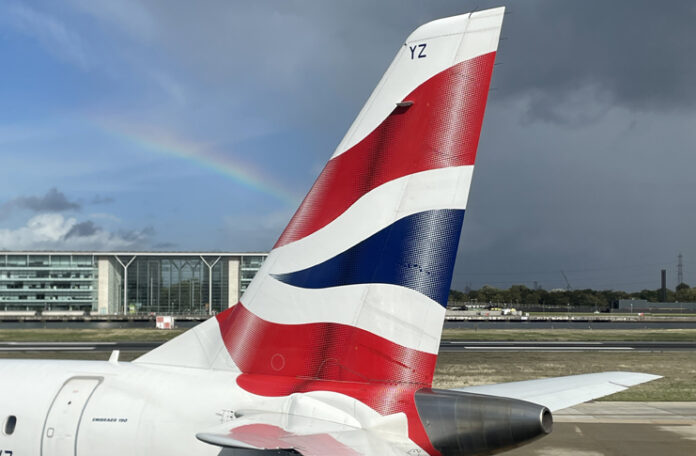


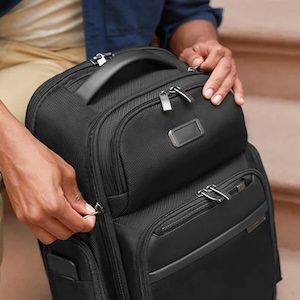
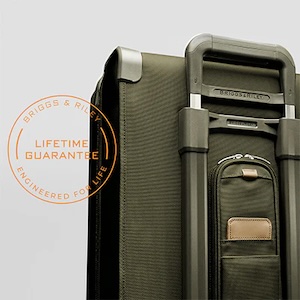



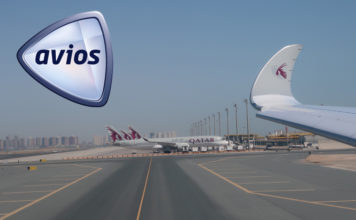


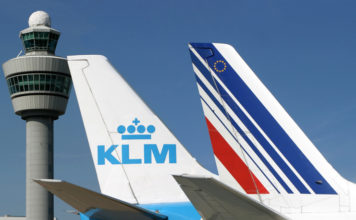



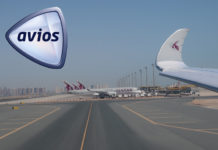



Well said.
A very “sober” and logical article. Even as a US based customer I was (!) dedicated to BA. The changes have altered my behavior and I’m now agnostic to an airline, rather book based on schedules, ease and price. The price of “dedication” no longer represents value.
I’m currently a gold member and will retain this until 2026. I’ve just chosen to spend £40,000 with Emirates on a Maldives trip instead of with BA purely based on being disenchanted with these changes. Enough said…..
That’s a big chunk of change!
Very nice and interesting paper. I agree and moreover I wonder how can be the add value to be gold or even GGL when you must pay so much money that means to fly always in Business and sometimes in First.
For a lot of people, I suspect the value isn’t there any more.
And the worse is that Iberia just announced that follow the same craziness first of April, Jesus!!!
Yes, and Iberia has also now devalued its cheapest Avios redemptions by making them hand baggage only.
excellent summary and analysis, thank you. I fly BA through another Oneworld member that still provides great high tier FF benefits, and certainly won’t be changing now.
I’m moving to Finnair Plus to see what that’s like – I’ll report back in a year! 🙂